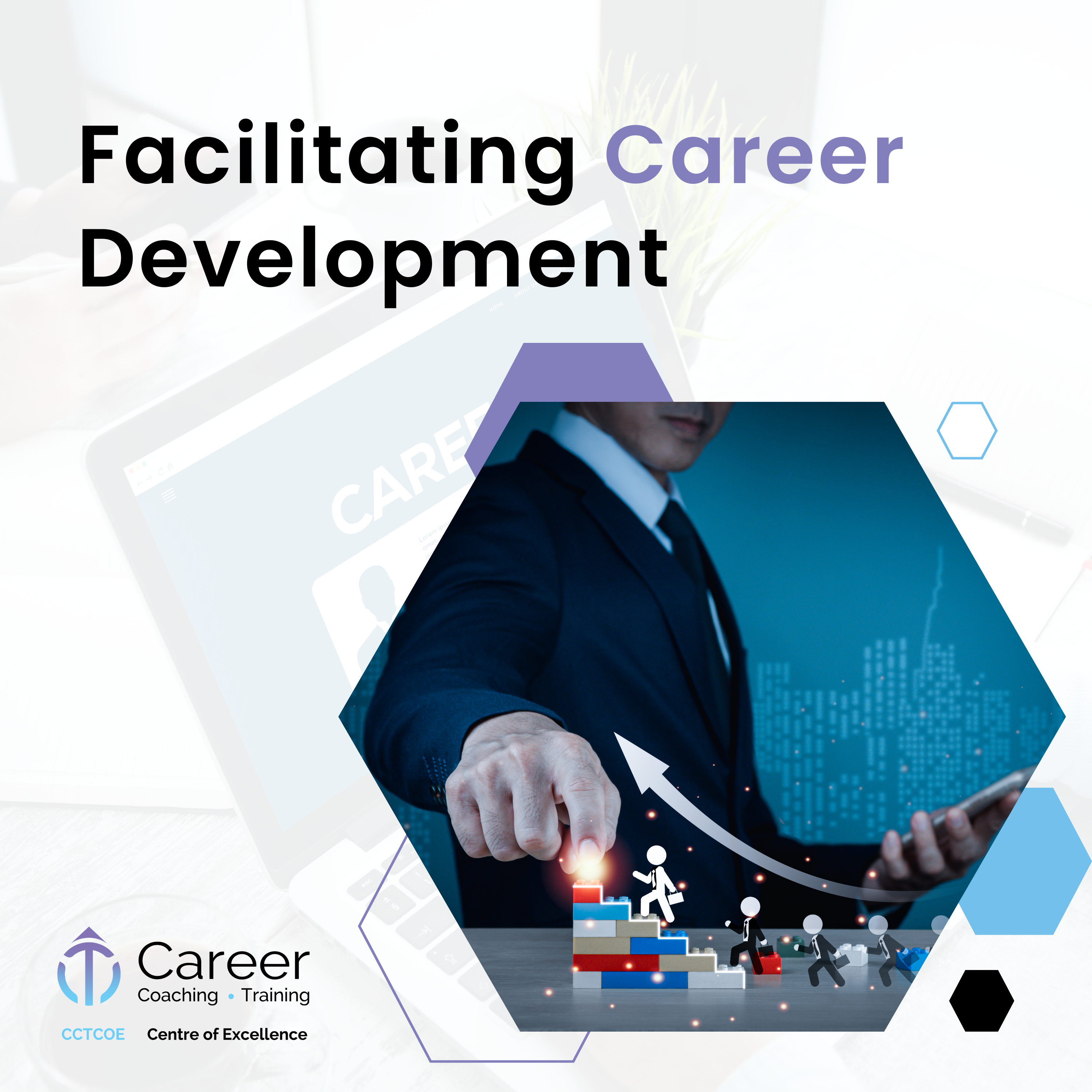
Facilitating Career Development
COURSE CONCEPT
As a career coach, you are likely to work with a variety of clients from a broad range of
ages, backgrounds with a range of career issues, such as school students needing help with
subject and tertiary institute selection, graduates who are seeking their first full time job
and job seeking skills support, those returning to the workforce who are unsure of their
next step, individuals seeking promotion with strategizing career progression, and older
adults wanting to downsize their work commitments.
The client has come to you as they are dissatisfied and seek a change in their career and
life. Your role is to facilitate the career development process to assist clients in attaining
their career goals.
You work with clients will be client-centred, exhibiting attitudes of genuineness, empathy,
and unconditional positive regard. Demonstrating these attributes will have a positive
effect on the quality of the client/practitioner relationship and the service that you
provide.
The course will provide you with the strategies to enable you to provide high quality and
client centred career coaching services.
AUDIENCE
For individuals seeking international course accreditation in career development practice
to work in a global environment with organisations and clients, develop and update their
knowledge and skills in career development, or fill a skills gap in their practice.
The course is suitable in various contexts and roles, including schools, education, training,
in the workplace in human resources or psychology, and/or experience working in
employment, recruitment, outplacement, youth work, apprenticeship, disability and
rehabilitation, case management, or management.
AIMS
• Facilitate career counselling-coaching with a client-centred approach to focus on
the client’s needs
• Identify the range of clients that Career Development Practioners assist and
understand their specific needs and goals
• Apply the 4-step career development process of Self-Discovery, World of Work,
Career Planning and Decision Making and Job Seeking
• Understand and appreciate a client’s change process to implement change
• Apply counselling-coaching skills to your practice Define Scope of Practice and
work within client boundaries
LEARNING OUTCOMES
Upon completion of the course, participants will be able to:
• Assist clients in implementing change by applying two models and applying
appropriate career development strategies at each stage. The models include:
o Bridges’ Transition Model of Change
o Stages of Change, or Transtheoretical Model — James Prochaska and Carlo
DiClemente
• Facilitate career development by applying counselling-coaching skills with clients
and apply a client-centred approach
• Specify the qualities of a career career development practioner, self-evaluate, and
undertake developmental action
• Discriminate between a client’s Presenting Problem and the core issue of the
problem
• Define and apply Scope of Practice to work within client boundaries
• Apply counselling-coaching skills with clients during each session
• Facilitate career development by apply counselling-coaching skills with clients
during each session including:
o Building rapport with clients
o Attending and listening to clients with non-verbal communication - SOLER
listening technique
o Using silence appropriately when working with clients and communicating
with people
o Reflecting and paraphrasing client stories
o Clarifying the client’s story, use questioning and summarising skills
o Focusing on the client and their problem/issue
o Providing constructive feedback to the client
o Working flexibly with clients to relate to their needs and transition from
one perspective to another
o Maintaining confidentiality
o Applying a range of problem-solving and career decision making skills
o Using career resources during the session
• Manage conflict and communication breakdown with a client
• Demonstrate cultural awareness when working with clients and others
• Write and store client case notes and process notes in counselling
COURSE CONTENT
• Understanding the range of clients and their individual needs and goals, namely,
school students and school leavers, graduates, individuals returning to the
workforce, individuals seeking to downsize their work commitments
• Applying the 4-step career development process of Self-Discovery, World of Work,
Career Planning and Decision Making and Job Seeking when facilitating career
development sessions
• Understanding And Implementing Effective Change – models:
o Bridges’ Transition Model of Change
o Stages of Change, or Transtheoretical Model — James Prochaska and Carlo
DiClemente
• Facilitating career development by applyingcounselling-coaching skills with clients
with a client-centred approach
• Identify the qualities of a career development practioner
• What is a Presenting Problem?
• What are micro counselling-coaching skills?
1. Building rapport
2. Attending and listening skills, applying non-verbal - SOLER listening technique
3. Use of silence
4. Reflecting and paraphrasing
5. Clarifying and the use of questions
6. Focusing
7. Summarising
8. Giving feedback
9. Flexibility
10. Maintaining confidentiality
11. Problem-Solving Skills
12. Managing conflict
13. Cultural awareness
14.Applying career resources in the session
• Models to assist your client in making a career decision
o Personal Resources
o Locus of Control – Internal or External
o SWOT Analysis
o Decisional Balance Matrix
• Managing Conflict and Communication Breakdown with a Client
• Strategies to Manage Conflict with a Client
• Writing Client Case Notes and Process Notes in Counselling
• Storage of Case Notes
Professional Development
CERTIFICATE

Upon successfully finishing the complete course, students will receive a Certificate of Professional Development accredited by Associated Career Professionals International.
Students can also receive a Certificate of Professional Development for each course they complete accredited by Associated Career Professionals International.
CONTINUING PROFESSIONAL DEVELOPMENT POINTS

The time spent on each course of study may be claimed as continuing professional development (CPD) by CDAA members towards Career Development Association of Australia (CDAA) requirements.
Non-CDAA members, please check with your professional association regarding their CPD policy
To claim your CPD points, present your certificate of course completion to CDAA or the professional association where you are a member.
Facilitating Career Development
$397 per person Including GST
COST PER COURSE


 Contact Us
Contact Us